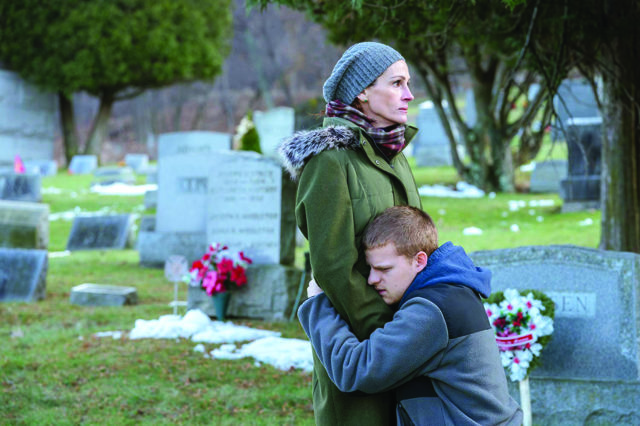
According to the National Institute of Drug Abuse, more than 72,000 Americans died from drug overdoses in 2017. The primary offender: opioids — heroin, fentanyl, oxycodone, hydrocodone, codeine, morphine and more — claiming nearly 50,000 lives. It’s a public health emergency with profound personal impact.
“The decision to write about the heroin/opioid epidemic came a number of years ago when a close friend overdosed and died,” filmmaker Peter Hedges tells Boulder Weekly. “Then a close relative nearly died, and I decided I need to write something because it’s ravaging my immediate life, the communities and the country.”
That was in 2014, right when the opioid epidemic started to garner headlines with the death of actor Philip Seymour Hoffman from a heroin overdose. In 2016, both Prince and Tom Petty died from accidental overdoses of fentanyl, bringing more attention to the dangers of prescription opioids. But for many, it wasn’t an introduction, it was reinforcement: Opioid use was getting out of control.
Hedges, the writer/director behind Pieces of April (2002), Dan in Real Life (2007) and The Odd Life of Timothy Green (2012), knew there was a personal story at the core of this crisis, and spent the next two years researching opioid use and the lives it has destroyed — not just the addicts, but their family members as well.
“Then after the [2016 presidential] election — feeling a bit hopeless and helpless about where things were heading — I decided to re-commit, or commit in a new way, to making impactful and urgent work,” Hedges recounts.
Out of that commitment came Ben is Back, a social realist drama about one family’s dark night of the soul in the icy grip of heroin addiction.
Starring Hedges’ son, Lucas, as Ben Burns, and Julia Roberts as Holly, Ben’s steadfast and supportive Mom, Ben is Back takes place on Christmas Eve when Ben shows up unannounced from rehab. Ben’s stepfather (Courtney B. Vance) and sister (Kathryn Newton) are suspicious of Ben’s sudden appearance, but like most mothers, Holly is just happy to have her son back under her roof.
But, as one suspects by the arrival of Ben, all is not well in the Burns’ household, and when mother and son find themselves tied together in a Dantean quest, not even finding rock bottom will be a relief.
“For this film to work, it needs to feel the least like a movie that we can make a movie feel,” Hedges explains. “Obviously, it’s a film, and obviously it’s Julia Roberts, but there are ways to making a film that will make it lean toward the feeling that you’re peaking in or peering into life.”
Hedges achieved that honesty by utilizing practical locations, not sets, and confining his story to a specific period of time.
“Part of why we wanted to set [Ben is Back] over the course of a day is that you only have so much time for the kind of cyclical repetition one experiences with an addict over a long period of time,” Hedges explains. “They say they’re not going to use; they use. They say they’re not going to use and they use.”
Thankfully Hedges does not rely on honesty alone and dips into the dramatic quiver when needed, allowing Ben is Back to walk a razor’s edge of accurate depiction with a glimmer of hope. If it didn’t, audiences would leave the theater despondent.
“We wanted to start this story with hope,” Hedges says. “That [Ben] had strung together 77 days of sobriety.”
Those moments, fleeting as they are, make Ben is Back all the more potent.
“You see what the cost is,” Hedges says. “The presence of [heroin and opioids] in this family, how it ravages them and tears them down.
“I wanted you to see what they were in danger of losing,” Hedges continues. “My experience with people who fight with this disease, when they’re not using they’re often the most dynamic and interesting and vital people.
“What makes this story tragic: you see the potential, you see the possibility,” Hedges says.
And thanks to two unforgettable performances from Roberts and Hedges, Ben is Back will hopefully find the audience that needs it most.
“If we could make a film that would reach them, then we would have done the most important work,” Hedges says. “Which is to make something relevant, urgent and impactful.”
Ben is Back opens Dec. 21.














